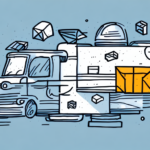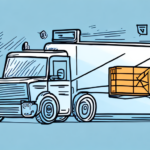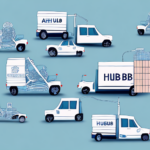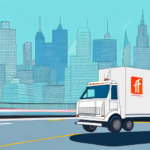Introduction to Last Mile Delivery Startups
The delivery industry has undergone a significant transformation, shifting from traditional courier services to innovative last mile delivery startups. Last mile delivery refers to the final segment of the delivery process, moving packages from distribution hubs to their final destinations, typically residences or businesses. This segment has been a focal point for disruption, with startups introducing novel solutions to enhance efficiency, reduce costs, and improve customer satisfaction. In this article, we delve into the rise of last mile delivery startups, exploring their evolution, impact, technological advancements, key players, emerging trends, and the challenges they face.
The Evolution of Last Mile Delivery
From Traditional Couriers to Modern Solutions
Traditional courier services have been the backbone of package delivery for centuries. However, the last mile segment remained relatively static until the advent of last mile delivery startups. These startups have revolutionized the industry by addressing persistent challenges such as high delivery costs, delays, and inefficient routing.
Innovations Driving Change
One of the primary innovations introduced by last mile delivery startups is the use of advanced technology to optimize delivery routes. By leveraging data analytics and machine learning algorithms, these companies can determine the most efficient paths, thereby reducing delivery times and operational costs. Additionally, models like crowdsourced delivery allow individuals to earn income by delivering packages, increasing flexibility and scalability in the delivery process.
Disruption in the Delivery Industry
Efficiency and Cost-Effectiveness
Last mile delivery startups are redefining the delivery landscape by offering faster, more efficient, and cost-effective services. Through real-time tracking, optimized routing, and on-demand delivery models, these startups provide superior service levels compared to traditional couriers.
Personalized and Sustainable Delivery Options
These startups emphasize personalized customer experiences by offering flexible delivery times and real-time updates. Moreover, there's a growing focus on sustainability, with many startups adopting eco-friendly delivery methods such as electric vehicles and bicycles, contributing to reduced carbon footprints.
Technological Advancements Fuelling Success
Artificial Intelligence and Automation
Technology is at the core of last mile delivery startups' success. Artificial Intelligence (AI) aids in demand forecasting and route optimization, ensuring timely deliveries while minimizing costs. Automation technologies, including drones and autonomous vehicles, are being explored to further enhance efficiency and reduce reliance on human intervention.
Real-Time Tracking and Customer Engagement
Real-time tracking systems provide transparency and improve customer engagement by allowing users to monitor their deliveries in real-time. This level of interaction fosters trust and enhances the overall customer experience.
Key Players in the Last Mile Delivery Space
Established and Emerging Startups
Several key players have made significant strides in the last mile delivery sector. Companies like Postmates, DoorDash, and Instacart have specialized in food delivery, while others like Shyp and Lalamove focus on package delivery for businesses and individuals.
Emerging startups such as Deliv and Roadie are expanding the landscape by offering same-day delivery and utilizing crowdsourced networks, respectively. These companies are continuously innovating to meet the evolving demands of the market.
Emerging Trends in Last Mile Delivery
Adoption of Green Technologies
Sustainability is becoming a key focus for last mile delivery startups. The adoption of electric vehicles, bicycles, and other eco-friendly modes of transportation helps reduce environmental impact. Startups like Goodr are pioneering initiatives to divert waste and promote energy-efficient delivery methods.
Integration of Autonomous Technologies
The integration of drones and autonomous vehicles is an emerging trend poised to revolutionize last mile delivery. These technologies promise faster delivery times and lower operational costs by reducing the need for human drivers.
AI-Driven Demand Forecasting
Artificial Intelligence is being leveraged to predict demand patterns, optimize inventory management, and enhance delivery scheduling. This leads to more efficient operations and better meeting of customer expectations.
Sustainability in Last Mile Delivery
Eco-Friendly Delivery Methods
Last mile delivery startups are prioritizing sustainability by adopting eco-friendly delivery methods. Electric vehicles, bicycles, and even pedestrian delivery options are being utilized to minimize carbon emissions and reduce reliance on fossil fuels.
Reducing Packaging Waste
Startups are also addressing packaging waste by using recyclable and biodegradable materials. Initiatives to minimize unnecessary packaging not only benefit the environment but also appeal to environmentally conscious consumers.
Impact of COVID-19 on Last Mile Delivery
Increased Demand and Operational Challenges
The COVID-19 pandemic significantly impacted last mile delivery startups, leading to a surge in demand as more consumers relied on delivery services. However, this also brought challenges such as ensuring driver safety, managing delivery delays, and navigating increased competition.
Accelerated Technological Adoption
The pandemic accelerated the adoption of technology within the delivery industry. Startups were compelled to enhance their digital platforms, implement contactless delivery options, and optimize logistics to meet the heightened demand.
Future Outlook and Best Practices
Growth Opportunities in E-commerce
As e-commerce continues to expand, the demand for efficient last mile delivery services is expected to grow. Startups have significant opportunities to scale their operations and innovate to meet future consumer needs.
Best Practices for Aspiring Startups
- Focus on Customer Experience: Prioritize personalized and reliable delivery services to enhance customer satisfaction.
- Leverage Advanced Technology: Utilize AI, machine learning, and real-time tracking to optimize operations.
- Embrace Sustainability: Adopt eco-friendly delivery methods and reduce packaging waste to appeal to environmentally conscious consumers.
- Build a Reliable Delivery Network: Ensure a large and dependable pool of drivers to handle peak times and maintain service quality.
Regulatory Considerations
Startups must navigate a complex regulatory landscape, including compliance with transportation laws, labor regulations, and environmental standards. Staying informed and adaptable to changing regulations is crucial for long-term success.
Conclusion
Last mile delivery startups have fundamentally transformed the delivery industry by introducing innovative solutions that enhance efficiency, reduce costs, and improve customer satisfaction. With the continued growth of e-commerce and an increasing emphasis on sustainability, these startups are well-positioned for future expansion and success. By leveraging advanced technologies and adhering to best practices, last mile delivery startups will continue to play a pivotal role in shaping the future of the delivery landscape.




















